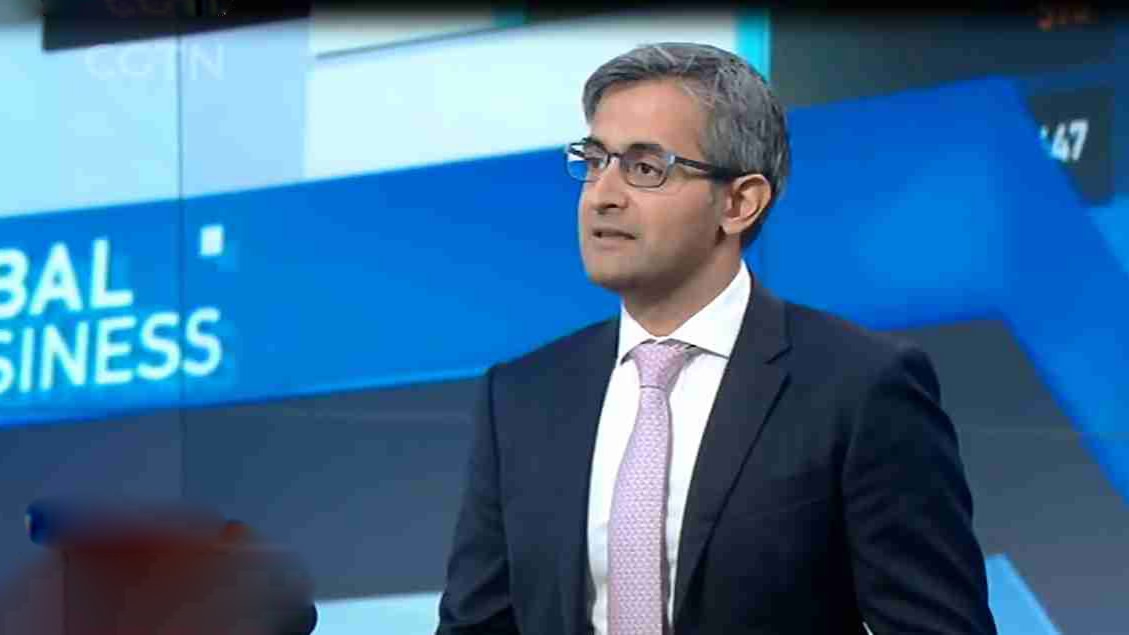
Business
20:41, 24-Apr-2018
Expert: ECB & BOJ to continue their accommodative monetary stance
By CGTN’s Liang Rui
03:06

Global central banks are expected to keep accommodative monetary easing when they release their monetary policies this week. Adarsh Sinha, Co-Head of Asia FX and Rate Strategy at Bank of America Merrill Lynch, said that inflation will not reach the satisfactory two-percent level any time soon, which makes it very difficult for either central bank to signal a change in policy right now. The expert called the inflation target a tricky thing for the European Central Bank (ECB) and the Bank of Japan (BOJ).
“I think for the ECB, especially if you look at the economic data, over the past one or two months, it’s been very weak… not just the service data but also things like German industrial production and German export data. So I think there’s a risk that the ECB this week will some perhaps a bit more dovish,” said Adarsh Sinha.
The expert added that, no matter what decisions the ECB and BOJ to make, Asia market would seldom suffer from the result. That’s because capital liquidity is the key for the Asian market and it’s up to the foreign exchange reserve of investors.
“So it’s interesting. For Asia, what matters is global liquidity. And if global liquidity is tightening as a result of the reduction of balance sheet by the fact, then that’s a bad thing for the Asian market. But I think for Asia, the reserve is more important than the ECB and BOJ,” said the Co-Head.

VCG Photo
VCG Photo
Actually, Adarsh Sinha focused more on the US Federal Reserve’s decision of interest rates, by saying that “I think typically the funding currency for more investors in Asia tend to be the US dollars. So if US interests are rising, that’s far more important for investors than in European and Japanese interests of falling.”
He further estimated that the US will keep raising interest rates thanks to the recovery of domestic economy.
“Dollars are strengthening against everything. And I think the market is finally coming to terms with the fact that the US economy is recovering, the Federal Reserve [will] keep [the] raising rate, and the dollar liquidity is tightening. All of that is very positive for the US dollar,” said Sinha.
US dollars strengthening is a reason that the Chinese yuan has become weak in the past four days. However, the expert said that’s maybe its not a bad thing for China.
“I think we must keep in mind that CFETS (China Foreign Exchange Trade System) basket for the RMB, as it appreciates six percent from the low. It retraced about 40 percent of the move from 2015 to 2017. So I think China’s perspective, from a policy perspective, it make sense to keep the CFETS basket relatively stable at a time when they are worried about trade,” he said.
The Co-Head predicted that the dollar/CNY rate will probably move higher, in line with a stronger dollar, towards 6.40 to 6.50 over the next three to four months.

SITEMAP
Copyright © 2018 CGTN. Beijing ICP prepared NO.16065310-3
Copyright © 2018 CGTN. Beijing ICP prepared NO.16065310-3